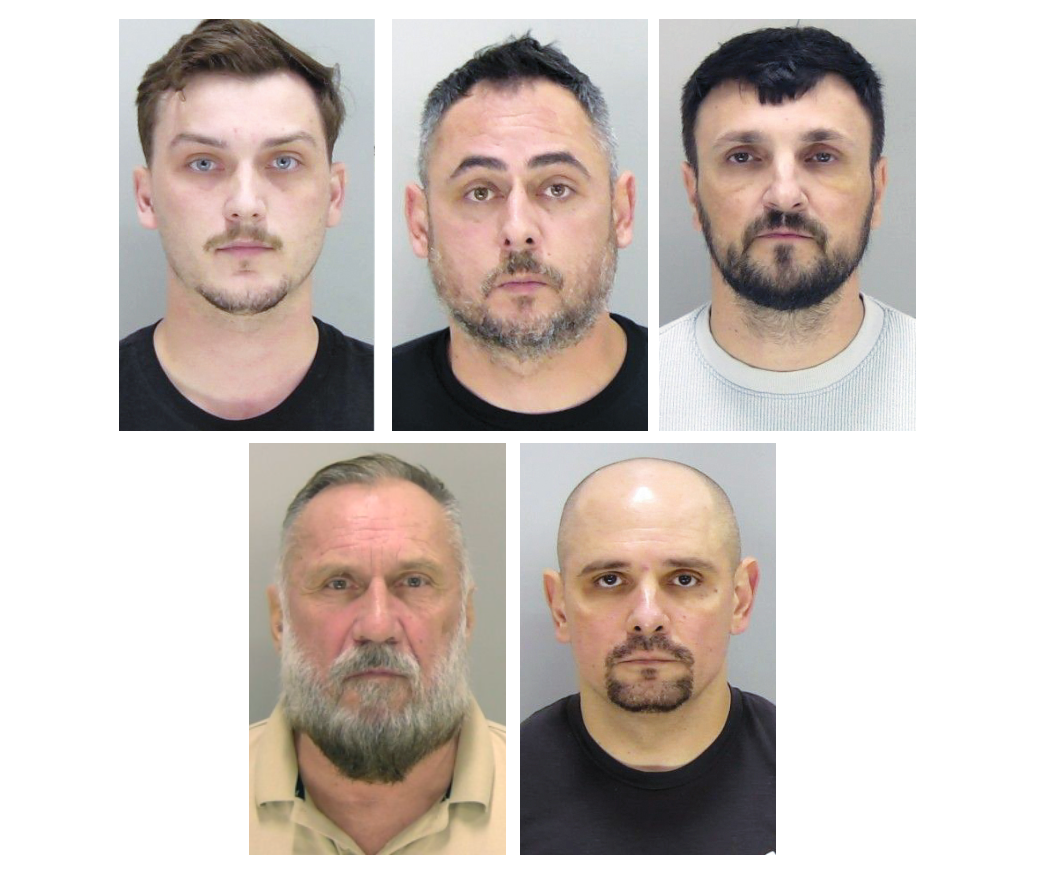Multiple local agencies have dismantled a credit card skimmer operation based out of an Airbnb in Augusta, resulting in the arrest of five men and the involvement of federal immigration authorities.
The investigation began after skimming activity was detected in Columbia and Aiken counties. Acting on information from the Columbia County Sheriff’s Office, Richmond County officers located the suspects Wednesday at a rental home at 1652 15th St., where they had been reportedly staying for about two weeks.
Inside the small home, investigators found ATM skimmers along with equipment used to copy and manufacture fraudulent credit cards. The men taken into custody were identified as Alin Gavris, 38, Yeison Hernandez, 41, Catalin Pietricica, 41, Benoni Dragne, 64, and Alin Beca, 25. All five were charged with possession of a financial transaction card forgery device. Gavris, Dragne, and Beca are also being held for Immigration and Customs Enforcement (ICE), and authorities say the men do not appear to be local.
The arrests follow at least one known skimming incident in Richmond County involving an ATM in Augusta, and authorities say additional cases linked to the group are expected. All five suspects are being held at the Charles B. Webster Detention Center.

Cases like this are part of a broader national pattern in which organized groups, often involving foreign nationals, operate skimming schemes across multiple states. Federal prosecutors in Georgia and elsewhere have brought similar charges in recent years.
In Savannah, two Brazilian nationals pleaded guilty in a federal case involving ATM skimmers used to steal bank-card information. In Mississippi, Romanian nationals were convicted after authorities found skimmer-making equipment and devices used to collect PINs and magnetic-stripe data. Other Romanian groups have been sentenced in Missouri for using an Airbnb as a base while installing skimmers on St. Louis-area ATMs.
Federal officials and financial-crime experts describe these operations as highly mobile and frequently tied to transnational criminal networks. Skimmer crews often move from state to state, installing devices on ATMs, gas pumps, and other payment terminals before retrieving stolen card data and producing counterfeit cards for cash withdrawals.
Recent enforcement actions, including a Secret Service sweep of more than 500 Georgia businesses, have uncovered dozens of hidden skimmers and prevented what officials estimated could have been tens of millions of dollars in losses.
Authorities in Richmond, Columbia, and Aiken counties say their investigation is continuing and that additional charges against the Augusta suspects may follow as more victims are identified.
Consumers can reduce their risk by using pumps or ATMs located in well-lit areas, checking for loose card readers or unusual attachments, and choosing machines monitored by attendants or located inside businesses whenever possible.









